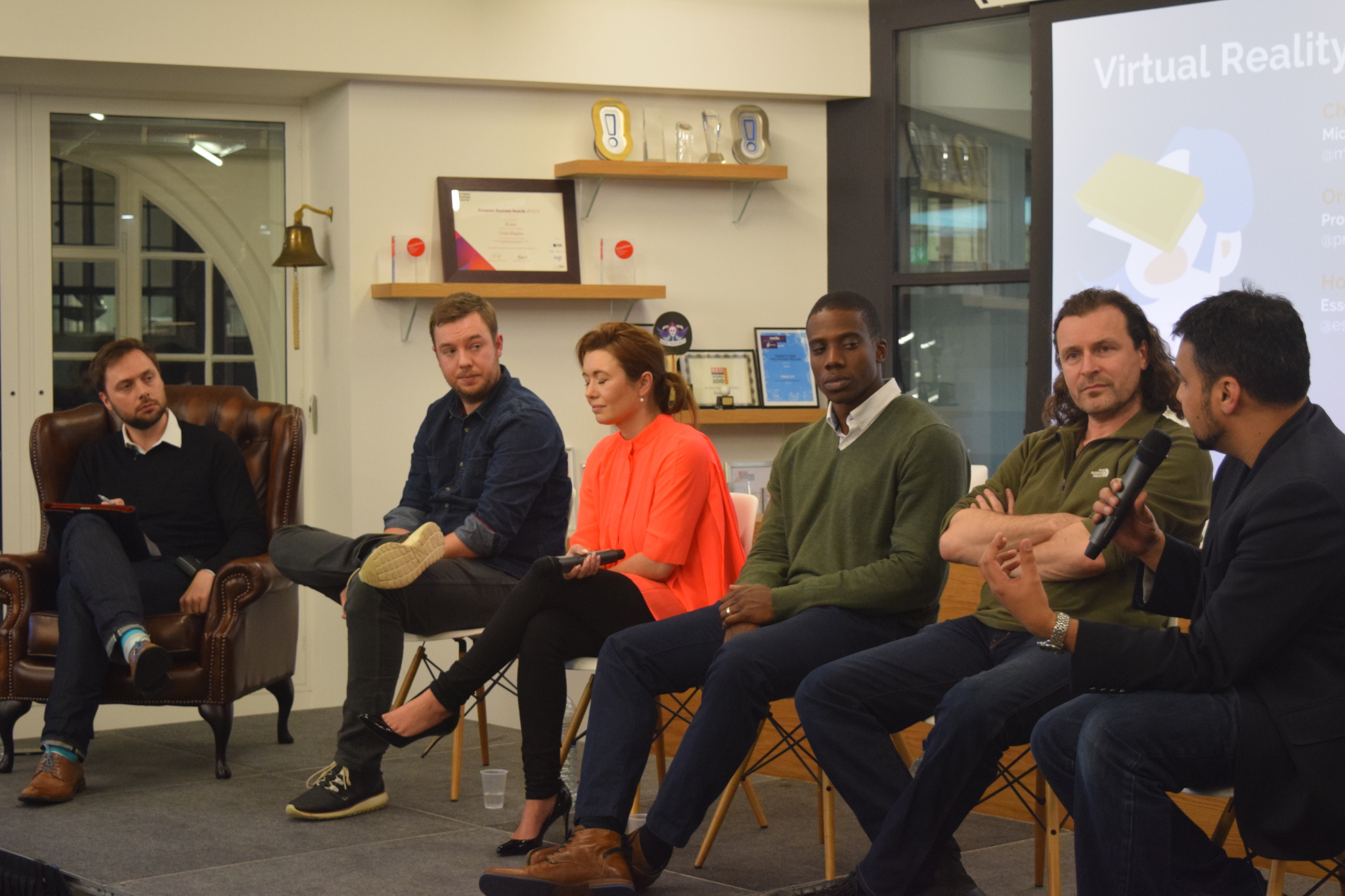
Virtual Reality is as close to “lucid dreaming” as humankind can reach and its potential is pretty much infinite – but we have not even started “building the ground rules yet”.
This was the view of industry experts gathered at Propeller’s Turbine event to discuss the current buzz surrounding Virtual Reality (VR). The debate covered the factors necessary to drive mass market adoption, the creative possibilities presented by the medium and the challenges that lie ahead.
The panel featured Karl Woolley, Creative Technologist at Framestore, Tamara Sword, co-founder of TMR&C, Kudzai Manungo, Product Management Executive at Thomas Cook, Jason Kingsley, co-founder and CEO of Rebellion and Shahid Ahmad, former Sony Director, Strategic Content. It was chaired by Michael Rundle, editor of Wired.co.uk, and took place at the office of agency Essence Digital.
Here are six key takeaways drawn from the debate
- This is a technology that really has to be experienced to ‘sell’ itself to the consumer. A real understanding of the power of VR can only be gained by donning a headset so for mass market adoption there will have to be serious investment in trialling VR from the shopping centre to the classroom. Ahmad described the experience as “lucid dreaming” and said “The first time I tried on an Oculus Rift headset I thought ‘this is it!’”.
- VR offers games developers a blank page and the chance to engage their imaginations to produce exciting experiences beyond shoot-em-ups and gore-drenched fantasy offerings. Ahmad said that developers did not pitch him many games featuring graphic violence when he was at Sony and Kingsley of Rebellion added that instead of turning the gaming experience “up to [the expected] 11”, his VR team was dialling “down to 8” as VR is so immersive and powerful.
- The opportunities for VR content and uses beyond the games sphere are huge. Woolley of Framestore said: “If the content is good people will watch and engage with it.” Kingsley outlined how VR users might be able to experience a performance of a Shakespeare play as it really was at The Globe Theatre in the 16th Century or how the technology can help preserve endangered environments and wildlife with “virtual tourism”.
- Marketing has skin in the game from the off with VR a perfect tool to ‘sell’ a service or product. Manungo explained how Thomas Cook customers had booked flights, holidays and upgrades “based on what they had seen on VR” and the medium could explain, for instance, what enhanced legroom actually felt like.
- The industry and regulatory authorities will have to prepare for unexpected uses of VR and associated behaviours. Sword said that when VR does reach its full stride some people will choose to remove themselves from this world and invest a lot of their time in virtual realities – and for some that could be a productive environment but for others it might not have such a positive impact on their lives. She added: “Computer games are addictive, screens are addictive … VR will be even more addictive so we need to brace for that.”
- Everybody is just on the starting blocks in terms of the development of VR and discovering what kinds of content will find success. As Sword observed: “I don’t think we have scratched the surface of VR and the level of interactivity is fairly limited – we are not at the ‘VR and chill’ stage yet.”
